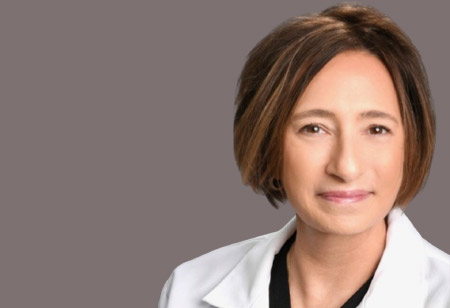Thank you for Subscribing to Healthcare Business Review Weekly Brief

Advancing Integrative Medicine in Pediatric Oncology
Healthcare Business Review
Since 2019, the Integrative Medicine Department within the MACC Fund Center for Cancer and Blood Disorders at Children’s Wisconsin has been at the forefront of a bold and necessary mission: to build a scalable, patientcentered integrative medicine (IM) model that can thrive within the constraints of a centers for medicare and medicaid services (CMS)-based healthcare system. IM is a patient-centered, healing-oriented approach to medicine that considers all aspects of the whole person. It is federally defined by the national center for complementary and integrative health (NCCIH) as the use of complementary medicine together with conventional medicine.
However, IM is often confused with alternative medicine, which is the use of a diverse group of medical and health care practices in lieu of conventional care. Despite growing evidence supporting the safety, efficacy, and value of IM therapies, their incorporation into pediatric, academic hospitals remains limited- due in large part to the absence of CMS recognition and reimbursement of integrative providers and services. While Acupuncture and Oriental Medicine, Chiropractic, Midwifery, Massage and Naturopathic Medicine are federally recognized and accredited integrative modalities, only two are reimbursed by CMS. As a result, many IM programs across the country, including our own, rely heavily on philanthropic funding to attain budget neutrality and sustain services.
At Children’s Wisconsin, philanthropy plays a critical role, not only to ensure the financial feasibility of our program but more importantly to provide a vehicle for families and supporters to actively participate in transforming care for children with cancer and blood disorders. Yet beyond the generosity of benefactors, the fundamental question remains: how can integrative medicine programs not only sustain themselves, but also grow, amid limited resources? At Children’s Wisconsin, the answer is education.
Beyond the generosity of benefactors, the fundamental question remains: how can integrative medicine programs not only sustain themselves, but also grow, amid limited resources? At Children’s Wisconsin, the answer is education.
The Integrative Medicine program in the MACC Fund Center emphasizes education, with a focus on the application of evidence-based, integrative therapies to provide a whole-person approach to care that supports the physical, mental, and emotional well-being of pediatric oncology and hematology patients. In pediatrics, where evidence for integrative therapies can often be limited, hesitation among providers to discuss or recommend these modalities is common and well-documented in the literature. To address this barrier, we prioritized staff and administration education, sharing the latest evidence for integrative therapies in pediatrics and oncology, including data from national institute for health (NIH) and National Cancer Institute (NCI) studies, as well as national health interview surveys (NHIS). This process bolstered understanding of integrative and complementary modalities while fostering institutional and staff buy-in for their use.
A key component of our IM model is equipping clinicians and staff with the knowledge, tools, and confidence needed to integrate complementary therapies into patient care. As an initial step, we introduced acupressure, a touch-based therapy grounded in acupuncture principles, delivered by a licensed acupuncturist. Acupressure was provided as an intervention for chemotherapy-induced nausea/vomiting (CINV) and pain. The results were positive, demonstrating safety, effectiveness, and improved quality of life. Following these outcomes, we created and implemented acupressure training for clinicians and staff, enabling them to provide acupressure directly to patients, further integrating this therapy alongside their standard care practices. Additionally, this alleviated the obstacle of needing continued donor support to offset an acupuncturist’s salary.
To expand our offerings, the IM program funded specialized integrative nutrition training for two of our clinical dietitians. This initiative augmented our ability to address the complex nutritional needs of children with cancer and blood disorders. The dietitians now lead a new strategy promoting whole-food nutrition, including customizable meal options featuring proteins and vegetables tailored to the preferences and needs of each patient. Most recently, the program welcomed a naturopathic physician who has complemented the IM team by providing expertise and education to both patients and care teams regarding the use of dietary supplements, natural products, as well as other complementary modalities, including sauna, hyperbaric oxygen, and red-light therapy. This addition has reinforced the team’s capacity to deliver evidence-based integrative care, ensuring that IM recommendations are rooted in both safety and efficacy. It has also empowered patients and families with a greater sense of autonomy, while fostering deeper collaboration and trust with their care teams.
By embedding integrative medicine into our standard of care and equipping clinicians with evidence-based, practical skills, we are not only expanding access to supportive therapies but transforming the culture of care itself. This education-driven model fosters meaningful collaboration between allopathic and integrative providers, strengthens patient-provider relationships, and empowers staff across disciplines. More critically, it creates a sustainable, scalable framework, one that reduces dependence on philanthropic funding, while ensuring equitable and consistent access to IM services for pediatric oncology, hematology, and BMT patients. As this program continues to grow, its impact on quality of life and patient outcomes underscores its value. It stands as a replicable blueprint for other institutions seeking to incorporate whole-person care into pediatric medicine.









